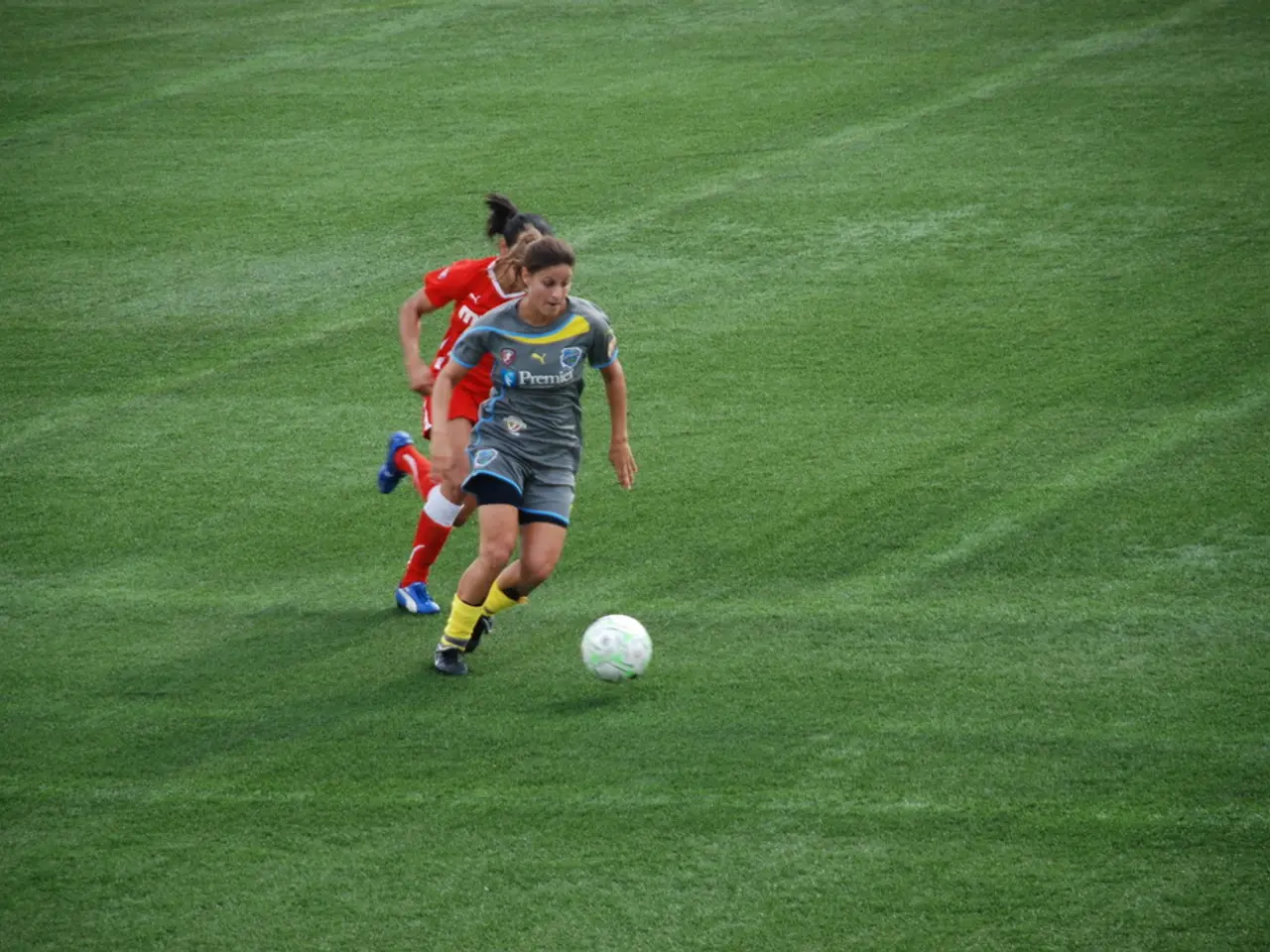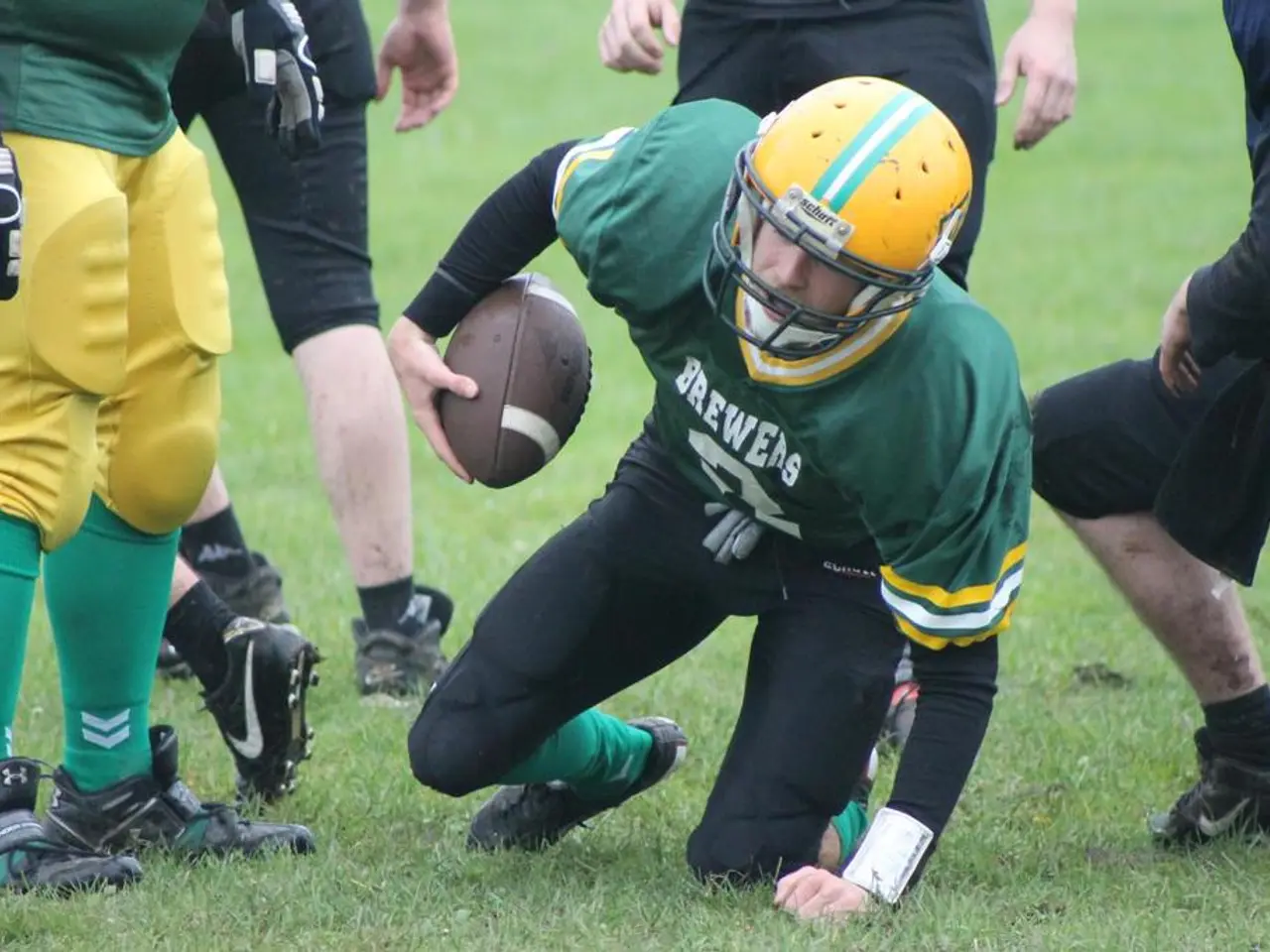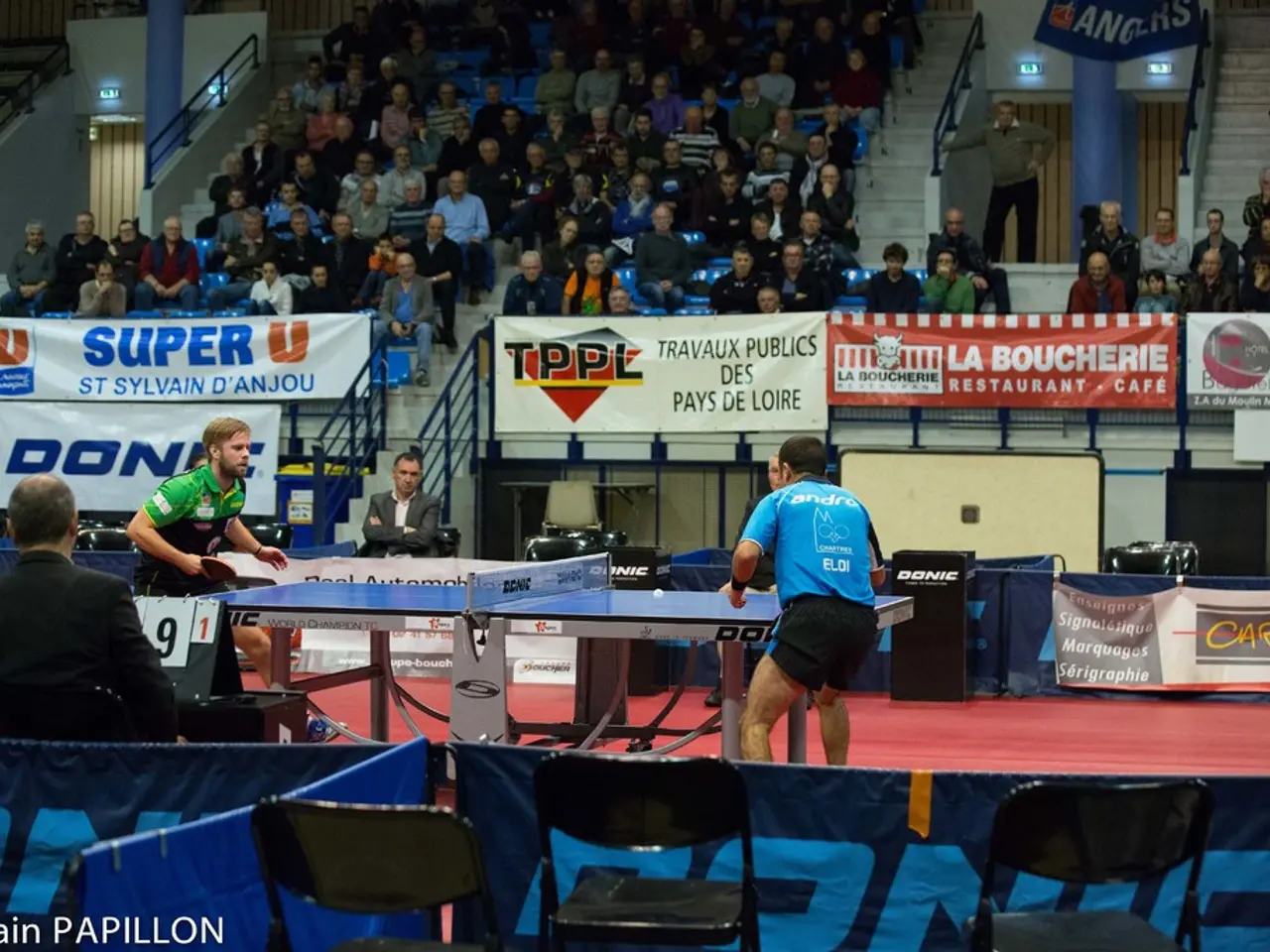Women's National Football Team Triumphs in Second Euros Final, Earning Historic and Unmatched Accomplishment. Yet, Some Men Remain Resistant to Celebrate the Victory.
In a groundbreaking victory, the England women's football team, known as the Lionesses, claimed the UEFA Women's Euro title in 2025, becoming the first England team to win a major tournament on foreign soil. The match drew a peak live audience of 16.2 million people, making it the most watched television moment of the year [1][6]. However, this triumph was met with mixed reactions, with some expressing hatred and disdain, particularly on LBC Radio [7].
The Lionesses' win was a testament to their resilience, grit, and determination throughout the tournament. Players like Chloe Kelly, who scored the winning penalty against Spain, demonstrated exceptional skill, with her shot clocked at 110km/h, faster than the most powerful shot in the men's Premier League last season by Alexander Isak [2].
Unfortunately, sexist comments and disparaging remarks towards women's football continue to persist in the UK, rooted in a male-dominated sports culture that often devalues and demeans female athletes [3]. A study by the University of Cambridge found that men are referenced almost three times more often than women in sports-related content [4].
This cultural backdrop has shaped ongoing sexist behaviors targeted at women’s football. For example, former footballer and pundit Joey Barton has publicly made sexist remarks about the Lionesses, trivialized their skills, and dismissed their achievements [2]. Data from the 2024-25 UK soccer season shows a significant rise in reports of sexism and misogyny, increasing by 67%, reported by the anti-discrimination charity Kick It Out [1].
A poll from Kick It Out found that 52% of people feel online sexism is putting girls off from engaging with football [5]. Trolling and online hatred seem to be part and parcel of being a professional female athlete in 2025.
Despite the growing awareness and condemnation of sexist abuse, the persistence and rise in such abuse indicate that sexism remains deeply embedded in UK football culture, making effective countermeasures urgent. Another report by the Equal Media and Culture Centre reveals that men's football receives 28 times more coverage than women's football [4].
However, the Lionesses' success and the increasing recognition of women’s football offer hope for a more inclusive and equitable future. The team is reshaping the game as we know it, encouraging young girls all around the world to embrace movement and follow their dreams, and sparking joy, camaraderie, and motivation [8].
References:
- Kick It Out
- The Guardian
- The Independent
- University of Cambridge
- Kick It Out
- BBC Sport
- LBC Radio
- The Telegraph
- The exceptional skill displayed by the Lionesses, such as Chloe Kelly's 110km/h shot, challenges the common devaluation of female athletes in the male-dominated sports culture.
- The rise in reports of sexism and misogyny in UK soccer, which increased by 67%, highlights the concerning persistence of such behavior in the sports scene, as revealed by the anti-discrimination charity Kick It Out.
- The Lionesses' victory in the UEFA Women's Euro title has sparked a call for more style, beauty, and grace to be celebrated in women's sports, breaking the stigma of health being the primary focus.
- The success of the Lionesses and the growing recognition of women's football could potentially pave the way for a transformative culture shift, where fitness and sports become platforms for promoting gender equality and intersectional diversity.








